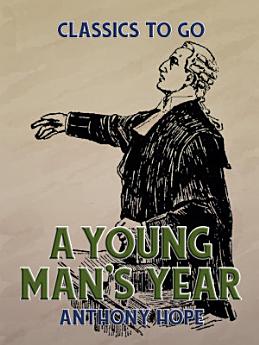A Young Man's Year
Sep 2019 · Otbebookpublishing
E-Book
279
Seiten
family_home
Zulässig
info
reportBewertungen und Rezensionen werden nicht geprüft Weitere Informationen
Über dieses E-Book
Excerpt: "It was a dark, dank, drizzly morning in March. A dull mist filled all the air, and the rain drifted in a thin sheet across the garden of the Middle Temple. Everything looked a dull drab. Certainly it was a beastly morning. Moreover—to add to its offences—it was Monday morning. Arthur Lisle had always hated Monday mornings; through childhood, school, and university they had been his inveterate enemies—with their narrow rigorous insistence on a return to work, with the end they put to freedom, to leisure, to excursions in the body or in the spirit. And they were worse now, since the work was worse, in that it was not real work at all; it was only waiting for work, or at best a tedious and weary preparation for work which did not come and (for all that he could see) never would come. There was no reason why it ever should. Even genius might starve unnoticed at the Bar, and he was no genius. Even interest might fail to help a man, and interest he had none. Standing with his hands in the pockets, listlessly staring out of the window of his cell of a room, unable to make up his mind how to employ himself, he actually cursed his means of subsistence—the hundred and fifty pounds a year which had led him into the fatal ambition of being called to the Bar. "But for that it would have been impossible for me to be such an ass," he reflected gloomily, as he pushed back his thick reddish-brown hair from his forehead and puckered the thin sensitive lines of his mouth into a childish pout."
Autoren-Profil
Anthony Hope, born Anthony Hope Hawkins on February 9, 1863, in London, was an English novelist and playwright whose works left an indelible mark on the adventure genre. Best known for his swashbuckling novel "The Prisoner of Zenda" (1894), Hope's storytelling prowess captivated readers with tales of romance, intrigue, and derring-do. A barrister by training, Hope's literary career began as a sideline but quickly became his primary focus after the success of his early works.Hope's narratives often explored themes of identity, duty, and the complexities of political power, resonating with the Victorian and Edwardian audiences who were grappling with the rapid changes of their times. His ability to create vivid, escapist worlds provided a welcome respite from the era's societal pressures and industrialization's relentless march.Controversy touched Hope's life when critics questioned the originality of his plots, particularly the striking similarities between "The Prisoner of Zenda" and earlier works by other authors. Despite this, Hope's influence on contemporary writers is undeniable. His creation of the fictional country of Ruritania inspired a sub-genre known as Ruritanian romance, influencing authors like P.G. Wodehouse and even modern fantasy writers.Hope's revolutionary idea was the seamless blend of high adventure with sharp social commentary, a combination that allowed readers to reflect on their world while being thoroughly entertained. His legacy endures as a testament to the power of imaginative storytelling, making him a pivotal figure in the evolution of popular fiction. Anthony Hope passed away on July 8, 1933, but his adventurous spirit lives on in the pages of his timeless tales.
Dieses E-Book bewerten
Deine Meinung ist gefragt!
Informationen zum Lesen
Smartphones und Tablets
Nachdem du die Google Play Bücher App für Android und iPad/iPhone installiert hast, wird diese automatisch mit deinem Konto synchronisiert, sodass du auch unterwegs online und offline lesen kannst.
Laptops und Computer
Im Webbrowser auf deinem Computer kannst du dir Hörbucher anhören, die du bei Google Play gekauft hast.
E-Reader und andere Geräte
Wenn du Bücher auf E-Ink-Geräten lesen möchtest, beispielsweise auf einem Kobo eReader, lade eine Datei herunter und übertrage sie auf dein Gerät. Eine ausführliche Anleitung zum Übertragen der Dateien auf unterstützte E-Reader findest du in der Hilfe.








